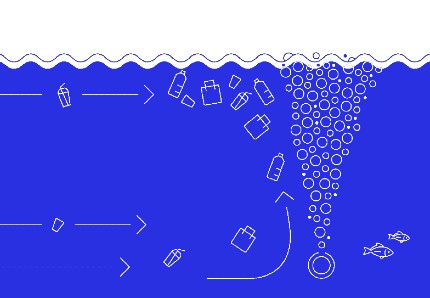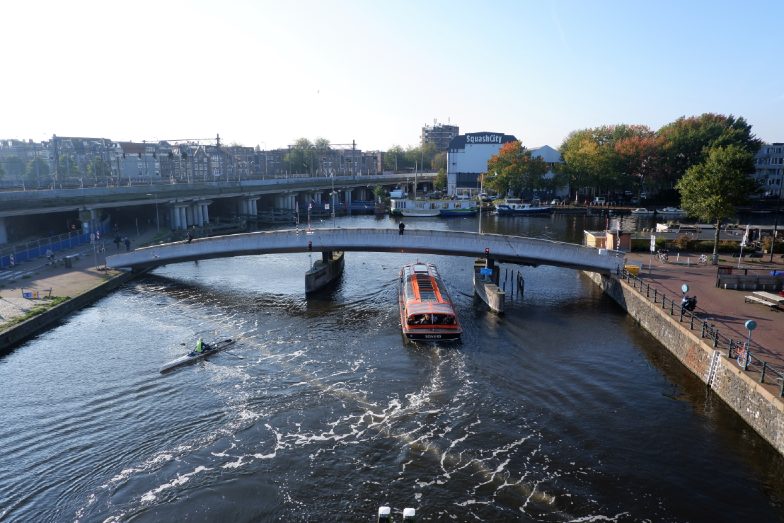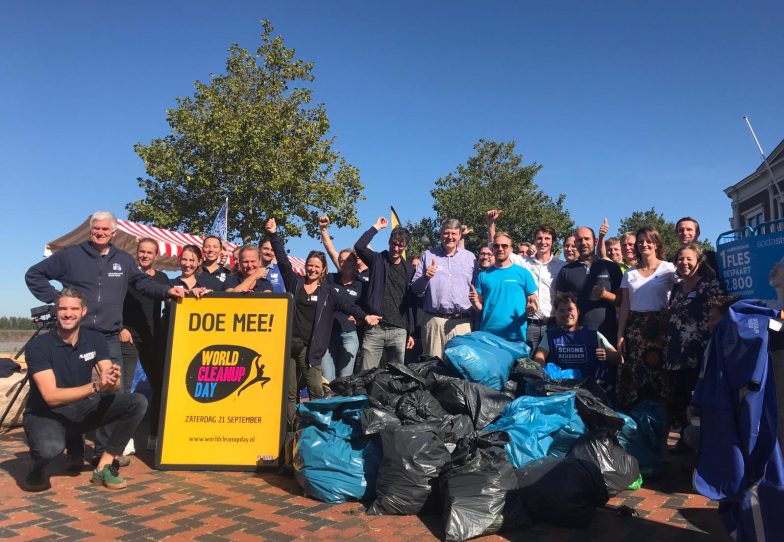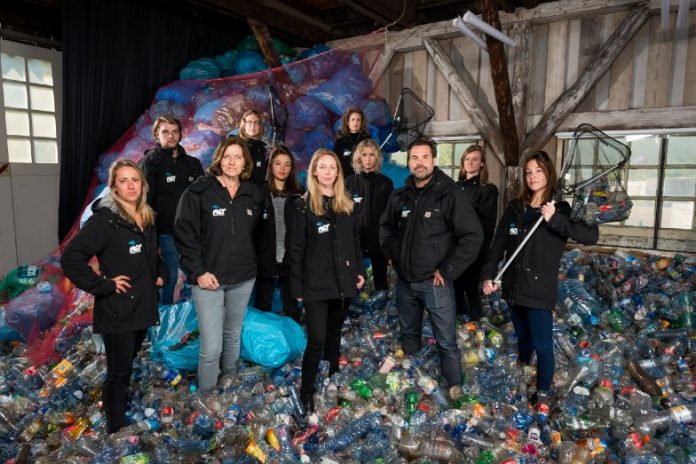Amsterdam is well-known for its vast network of canals, which stretch for over 100km and are classed as a UNESCO World Heritage site. Floating on top and buried within these waters, however, lies a serious issue: plastic waste. The city’s garbage boats collect around 42,000kg of plastic from its canals each year, but local individuals and organisations have also been inspired to act.
Innovative solutions, including Plastic Whale, which describes itself as the first plastic fishing company in the world, and The Great Bubble Barrier, a mechanism to block waste using bubbles, are making the city a global pioneer in the fight against plastic pollution.
Their work is more important than ever to achieve the UN’s Sustainable Development Goals, and especially Goal 14 ‘Life Below Water’. An estimated eight million tonnes of plastic waste end up in our oceans every year. In the North Sea alone, there are almost 4,000 items per square kilometre floating around, and 95 percent of these items are made from plastic.
Plastic Whale
Millions of tourists are drawn to Amsterdam each year, and many enjoy exploring its most beautiful sights on a canal boat. Now, visitors can sightsee while helping to make a difference, by going plastic fishing. Dutch company Plastic Whale has so far welcomed 50,000 people and 500 companies aboard its boats to fish for plastic waste in the city’s canals, with a mission to make the waters plastic-free and create value from plastic waste.
The company collects an average of 40,000 PET plastic bottles from the city’s waters each year and uses them as a raw material which is turned into boats, tables and other furniture. It also has a school educational programme that aims to educate the next generation on the plastic issue and how to take positive action.
It was launched in 2011 by Marius Smit, who was inspired to start the company after witnessing the issue first-hand on a deserted beach in Borneo that was littered with plastic.
“It was so shocking, that it opened my eyes and gave me the motivation to learn more about the plastic soup problem – which was not as familiar then as it is now,” Smit told UNRIC.

The Great Bubble Barrier

But what about plastic that slips through the net? In November 2019, a Dutch start-up, the Amsterdam municipality and the regional water board installed the Bubble Barrier in Amsterdam’s Westerdok canal. The location was chosen because of its links to the North Sea.
The barrier is a curtain of air bubbles created by pumping compressed air through a perforated tube placed on the bottom of the canal. It blocks floating plastic and brings it to the surface, and the bubbles do not interfere with shipping or wildlife. The barrier stops smaller plastic waste (1-20 mm) and plastic floating both underneath and on top of the water’s surface.

The idea was sparked by the bubbles in a glass of beer, after the company’s women founders met for a drink and sought a solution to the concerning levels of plastic they saw while sailing at sea.
“We are really glad Amsterdam is taking responsibility to tackle this problem and hope it can be an example to other cities. The Dutch have a good connection to the water, we are literally surrounded by it, so we have to deal with it,” The Great Bubble Barrier spokesperson Sandy Reitsma said.
While it is too early to measure the barrier’s success so far, test pilots have found it was able to intercept 86% of material.
Plastic Soup Foundation
Among Bubble Barrier’s partners is the Plastic Soup Foundation, which helps stimulate innovative solutions in the fight against plastic waste by tackling the plastic issue at its source. It promotes new ideas, raises awareness and runs educational programmes.

Launched in 2011 and growing to a team of 23, the foundation has had a sizeable impact according to the foundation’s own online analytics. In 2019 alone, its campaigns, outreach and messaging potentially reached 2.8 billion people across the world.
“The Netherlands is in a privileged position which gives us the space and room to make differences, to invent. We have a secure government which ensures peace and stability, and stability brings big changes,” said Founder and Director Maria Westerbos. The former journalist feels optimistic for the future.

- Part of UNRIC Benelux and EU #SDGActors series.“Inclusion in the UNRIC Benelux SDG Actors series does not reflect the views of nor does it represent an endorsement by UNRIC.”

